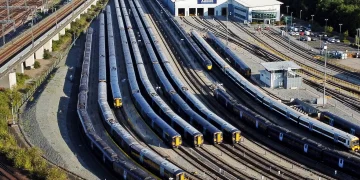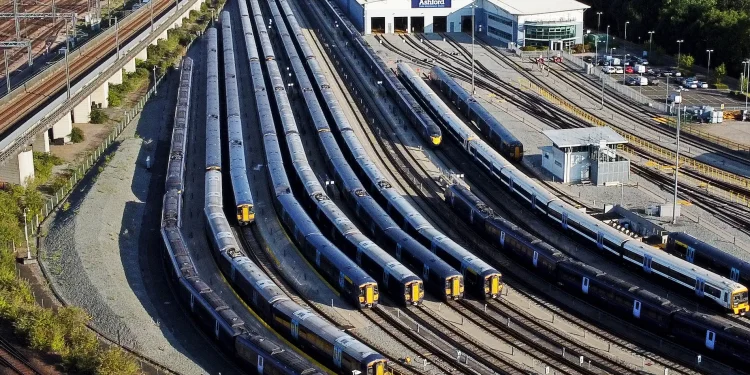By Maria Kalamatas | July 16, 2025
Vienna, July 16 — Rail cargo operations across Central Europe are struggling to maintain flow as soaring temperatures force speed restrictions and infrastructure slowdowns across key trade routes between Rotterdam and Budapest.
“Rails expand dangerously when the steel overheats, and that’s what we’re dealing with now,” said Georg Keller, track operations manager at Austria’s ÖBB Infrastruktur. “Some sections require trains to slow by nearly half to avoid safety risks.”
Delays stack up as heat intensifies
Freight operators are reporting hold-ups ranging from 18 to 36 hours, as heat-sensitive cargo faces bottlenecks through Germany, Austria, and Hungary. Major logistics hubs in Linz and Győr have reached peak capacity, with backlogs expected to worsen through the week.
Rail Cargo Group and DB Cargo have both issued service advisories, noting temporary rerouting or rescheduling to manage the load.
Systemwide pressure on infrastructure
Beyond tracks, signaling equipment is also under duress. At temperatures nearing 40°C, electronic systems falter, forcing manual overrides and causing further lag.
“This kind of operational strain is no longer occasional,” explained Klára Tóth, communications officer at MAV Hungary. “We’ve entered a pattern where summer heatwaves are part of annual planning.”
Limited alternatives via road
While some cargo is being diverted to trucking, high road temperatures are also leading to tire damage and engine overheating. As a result, intermodal operators are exploring cooler alternatives via northern routes through Poland and the Czech Republic — where capacity remains constrained.
“We’ve already moved high-value goods like pharmaceuticals onto nighttime slots,” said Jan Drábek, freight director at Skynet Europe. “Even minor shifts in temperature planning can protect sensitive loads.”
Call for long-term adaptation
Transport analysts are urging faster investment in heat-resistant rail materials and intelligent routing systems. Without proactive upgrades, experts say recurring heatwaves will repeatedly paralyze logistics.
“This is no longer a future threat — it’s a current crisis,” warned Carmen Lenz of the European Freight Federation. “Freight networks must now evolve with climate extremes as the new baseline.”





















